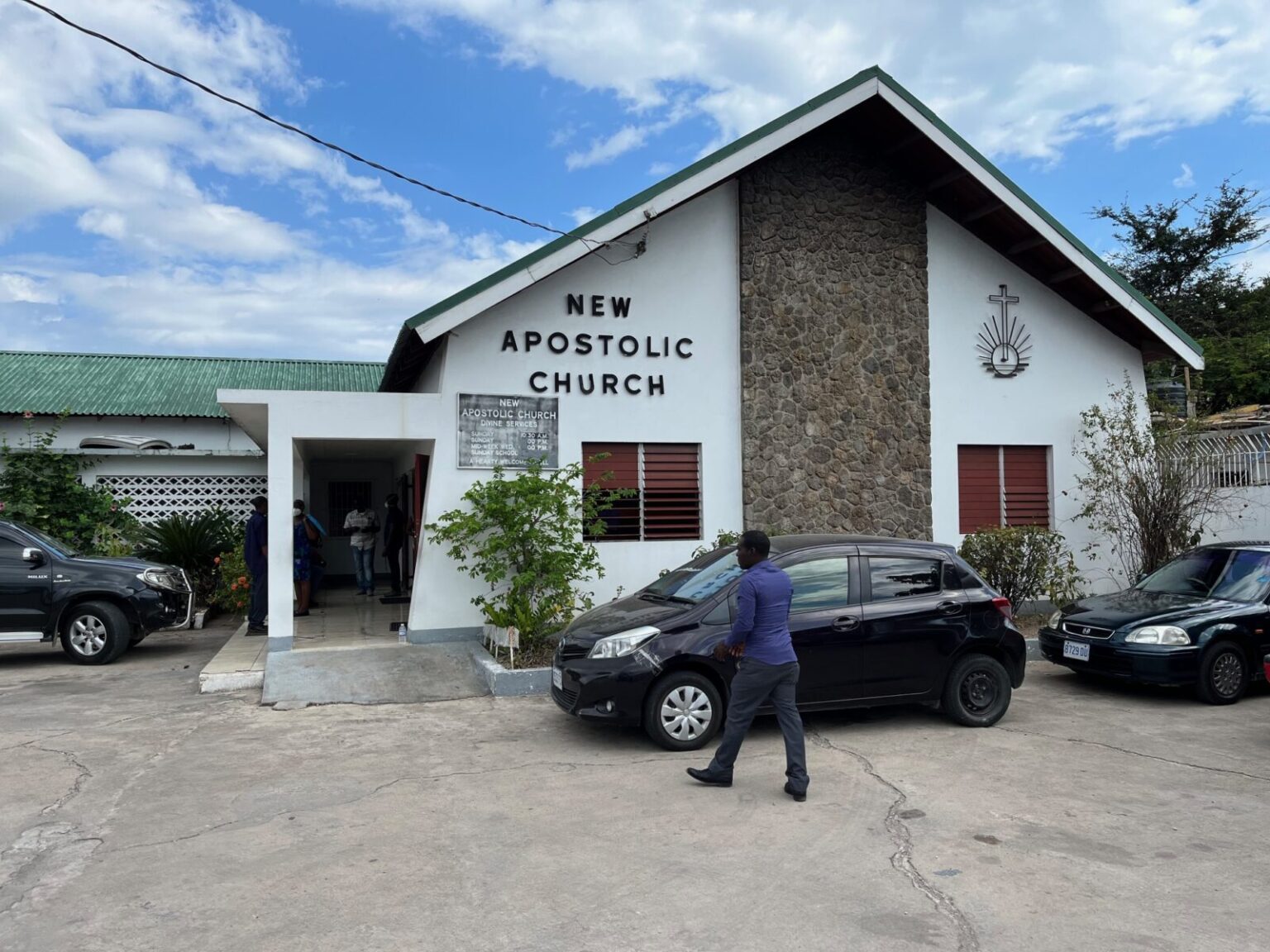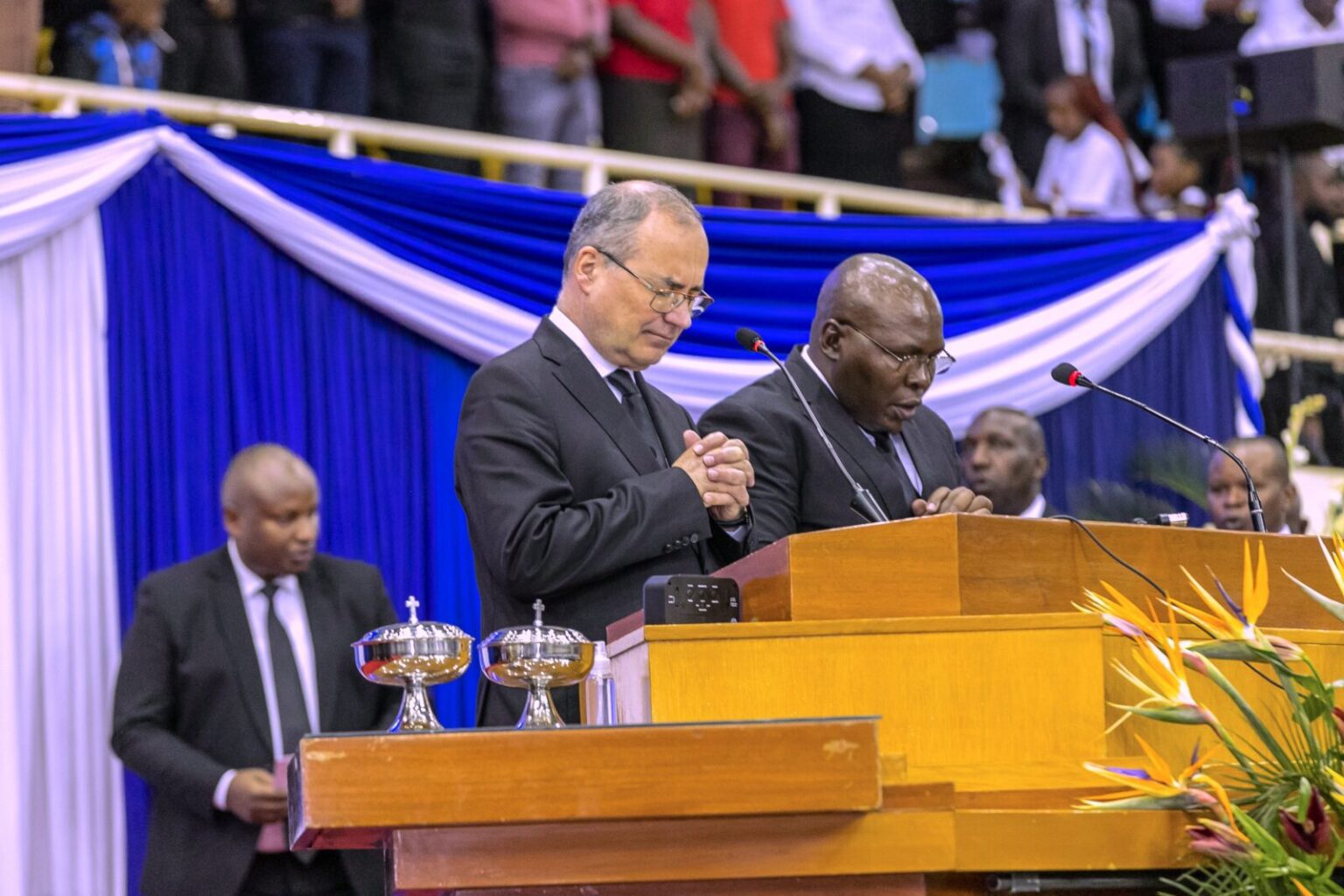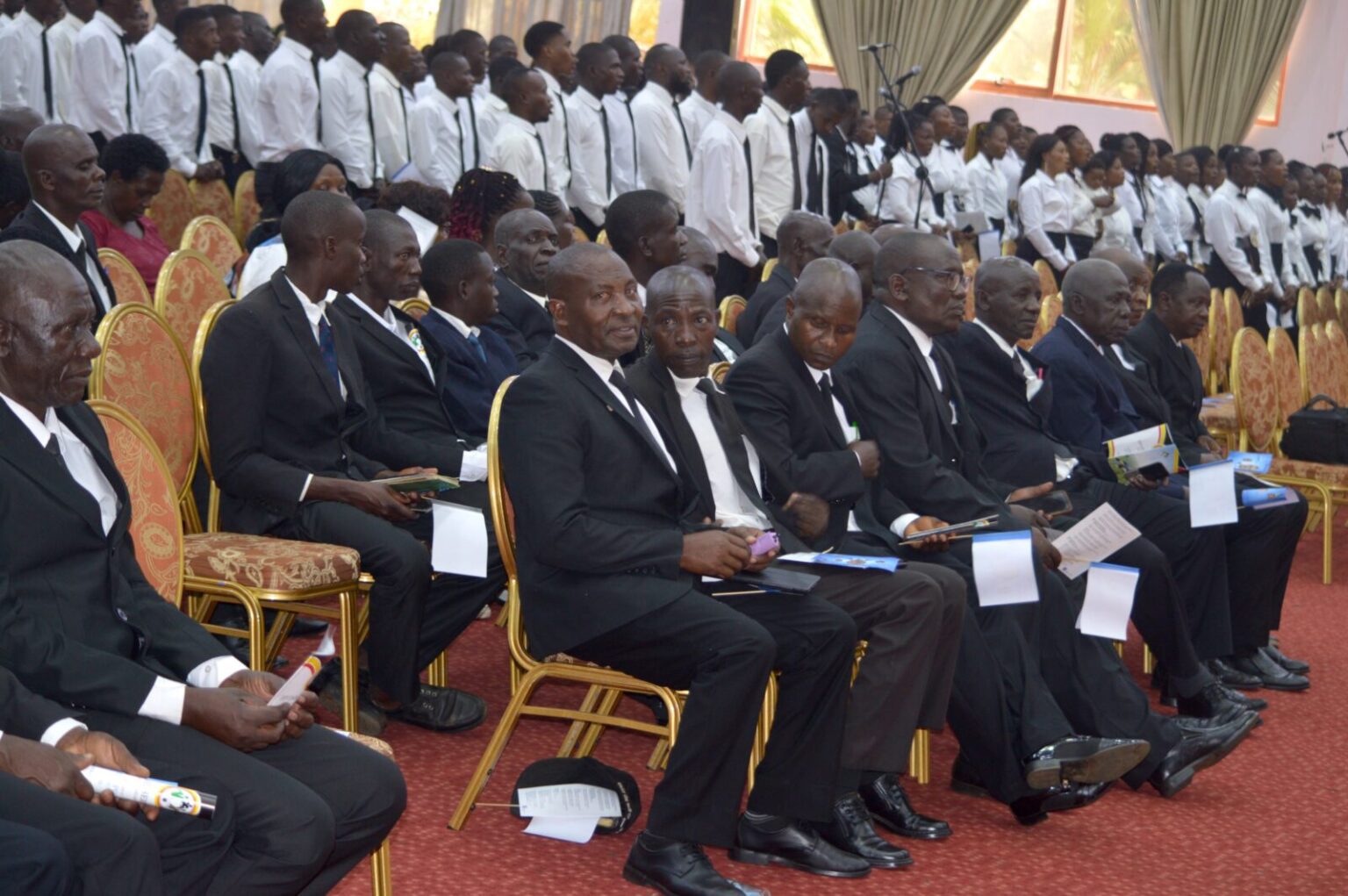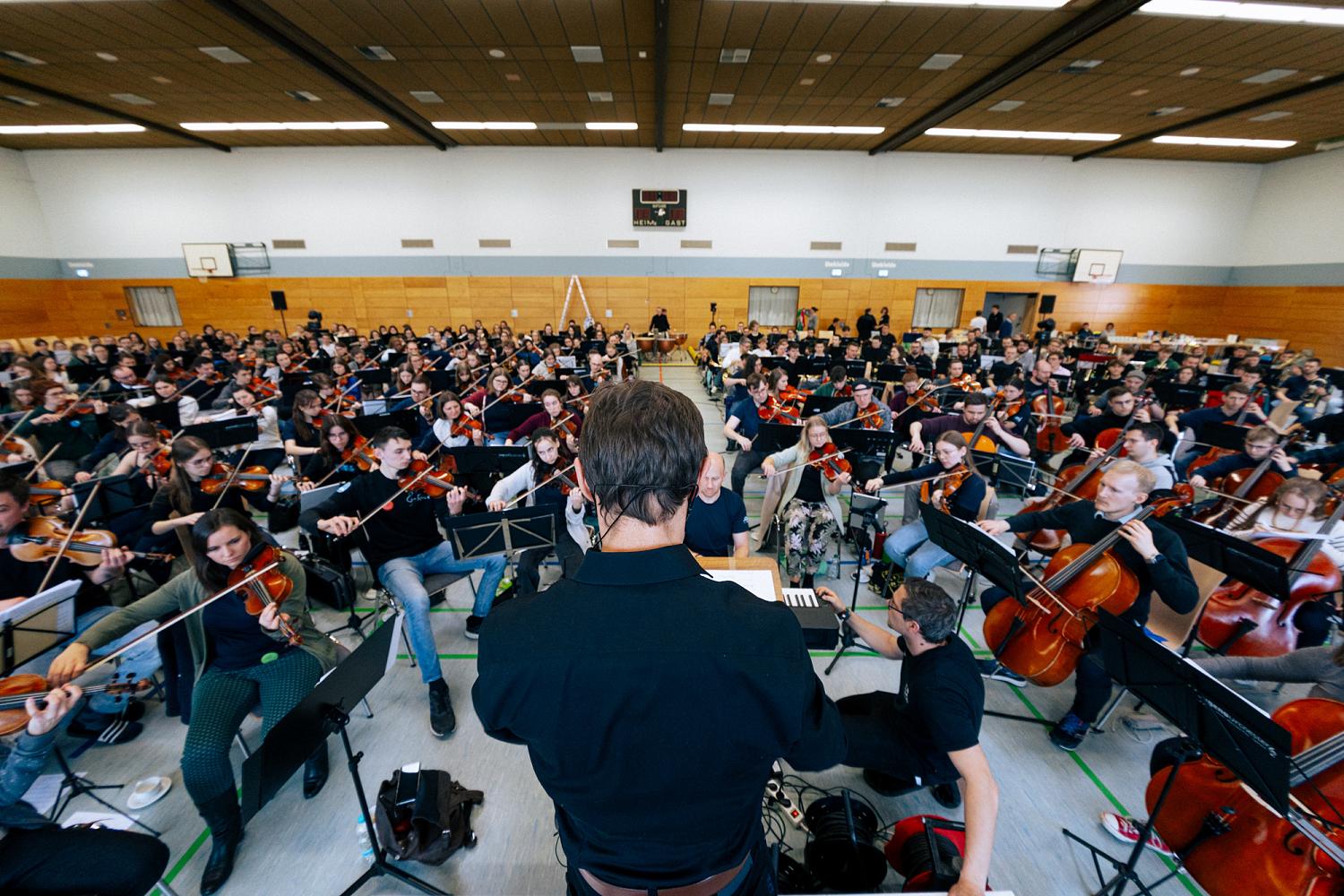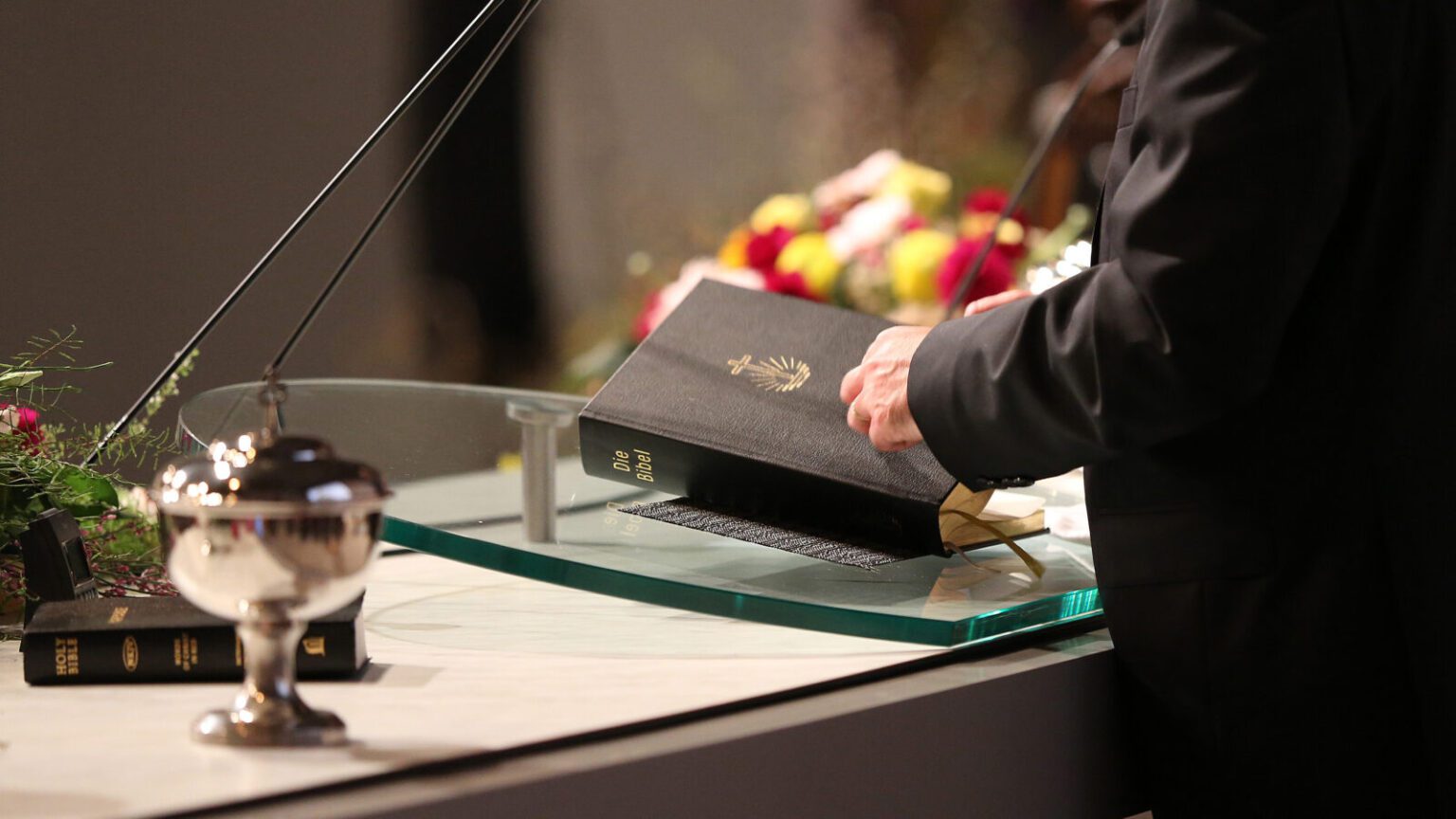

“What does the Chief Apostle say about that?” This is a question that people often ask. Following is a review of some of the divine services celebrated by Chief Apostle Schneider in the past year.
Childhood in God
What does it mean when Christians speak about the childhood in God? “As New Apostolic Christians we believe that we have received the Holy Spirit at our sealing.” In his Pentecost service in Vienna (Austria) the Chief Apostle emphasised the statements from the New Apostolic catechism, but with a twist: “That does not mean that other people cannot be children of God. God is the Father of all human beings because He has created them.” And “every Christian can worship God, calling Him his heavenly Father.”
Sacrifice and offering
Why should a human being sacrifice and offer to God? And what should he give? Some say they do so out of tradition or because they will get into trouble if they do not. But in his divine service in Koumra (Chad) the Chief Apostle said that the only thing that was really important was the right motivation: gratitude to God. The Bible, he says, does give some indications what God originally intended: God’s people were to bring him their tithes. “That is more than giving Him something once in a while when we come to church.” What is decisive is our motivation: “We honour God and bring Him our offering even if it hurts. Because we know that everything comes from Him.”
Love
God is love. This is the sweet message of the gospel. In his divine service in Melbourne in Australia the Chief Apostle explained: “God loves us all in the same way, no matter who we are, where we come from, regardless of our weaknesses, and despite our failures. He loves us.” But that also means that God loves all human beings, really all: “He loves my neighbour as much as He loves me.” This sounds very bitter for some. They are glad that God loves them, but they cannot accept the fact that God loves their neighbour as much as He loves them. “Let us accept the love of God. It is wonderful to know that God loves me with all my shortcomings, and that is why it is not a problem for me that He loves others as much as He loves me.”
Our youth
Chief Apostle Schneider used the Day of the Youth in Alicante in Spain to send a clear message to the young people in the Church. The statement that the young people are the future of the Church is much more than an empty slogan, he told them. It is a profound truth: “The manner in which you serve the Lord today and are involved in the Church is crucial to the service that will be provided in the Church of the future. Of course your own personal development also plays a role, as does the activity of the Holy Spirit and your own spiritual maturity. I therefore ask you, ‘How do you see the Church in the future?’ You determine that today. Treat each other with love, serve one another out of love for the Lord, then it will become more and more beautiful in the Church.”
Overcoming
In Lubumbashi in the Democratic Republic of the Congo Chief Apostle Schneider proved that he can also captivate children. The topic of the service was “overcoming evil with good”. He said, “What is evil? Everything that separates us from God and that makes people suffer.” He went on to ask how we can fight against evil. “By healing sick people and punishing bad people? No,” he continued, “this is not the kind of power God gave us.” But He did give us three weapons, he added, and mentioned prayer, obedience, and love. “This is our great fight against evil: each one of us struggles in his or her situation, and then the evil around us will retreat.”
Sin
Every person is a sinner—clear words in a divine service in Lampung in Indonesia. That is why human beings cannot enter eternal fellowship with God. “Jesus wants to forgive us, but there is one condition: ‘Go, and sin no more!’ the Chief Apostle quoted John. It is not enough to just follow certain rules. “Of course, we have to be baptised and we must keep the commandments. But this is only the first step on the path to salvation. We have to change inside, we have become like Jesus.” He urged believers: “Let us not become New Apostolic Pharisees.”
On being a Christian
How can Christians live a Christian life today? In a divine service in Winterthur in Switzerland, Chief Apostle Schneider answered this question as follows: by getting rid of the notion that all things are determined by fate. “This is not about playing the hero and wanting to change the world. Important is to return the love of God.” By being courageous: “God is with us in suffering and distress, in injustice, and even in death. God is especially close to you in such moments, even if you have to suffer and things are going badly for you.” By showing love and compassion: “Let us make sure that no one is excluded from salvation because of us. It is not up to us to close the door on salvation for one or the other because he does not suit us or because we find him unpleasant.”
The return of Christ
When will the Lord return? Once the last soul has been sealed, we were told in the past. “We do not say that any more today,” the Chief Apostle said in a divine service in Saskatoon, Saskatchewan (Canada). That was a little selfish. He went on to explain: “We wanted to find the last soul so that we ourselves would be saved. That was our motivation and that is just a little bit selfish. Today we believe that our motivation should be something else,” he said and emphasised, “Out of love, we want people to receive exactly the same things as us. We want to share salvation with them.”
Photo: Marcel Felde





